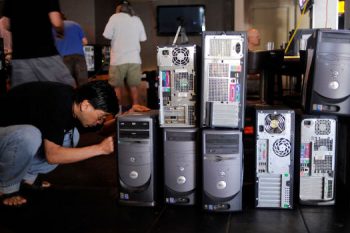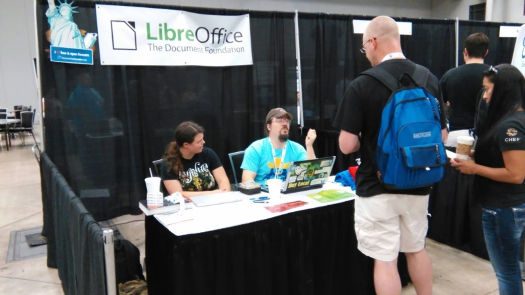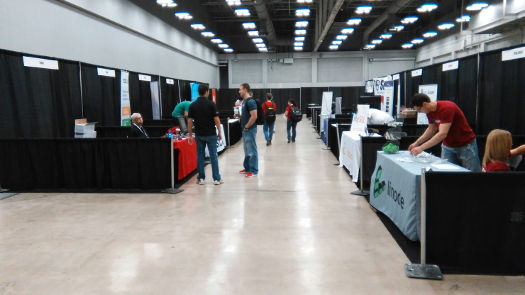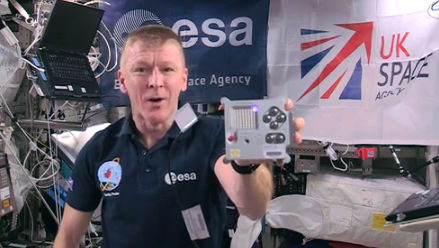The proprietary software used by most libraries is incredibly expensive, and comes with support costs that can be even higher. Projects like Koha bring the option of a free and open source solution into play.
The Video Screening Room
Randal Schwartz, from TWiT.tv’s “FLOSS Weekly,” interviews Nicole Engard and Brendan Gallagher, about the open source Koha Integrated Library System (ILS), which originated in New Zealand in 1999. Along with being a web developer, Nicole is a prolific blogger on Opensource.com and last year was recognized by Red Hat for her significant contributions to open source advocacy.
For the past 10 years, Phil has been working at a public library in the Washington D.C.-area, helping youth and adults use the 28 public Linux stations the library offers seven days a week. He also writes for MAKE magazine, Opensource.com and TechSoup Libraries. Suggest videos by contacting Phil on Twitter or at pshapiro@his.com.



 Bender contacted me early in 2009 and proposed we organize an event to bring the greater Austin community, the Austin Tech community and HeliOS under one roof. We would ask people to bring unused or broken computers to our event. Through Lynn’s network connections, a 6th Street bar owner gave up his bar for an entire Saturday. That, in turn, allowed over 50 Austin geeks to converge on 6th Street to set up stations and transform the broken computers coming in the front door into fully-functioning computers going out the back door and into our waiting truck.
Bender contacted me early in 2009 and proposed we organize an event to bring the greater Austin community, the Austin Tech community and HeliOS under one roof. We would ask people to bring unused or broken computers to our event. Through Lynn’s network connections, a 6th Street bar owner gave up his bar for an entire Saturday. That, in turn, allowed over 50 Austin geeks to converge on 6th Street to set up stations and transform the broken computers coming in the front door into fully-functioning computers going out the back door and into our waiting truck.





 The review on Distrowatch was part of a one time trade that had Distrowatch’s Jesse Smith writing a
The review on Distrowatch was part of a one time trade that had Distrowatch’s Jesse Smith writing a 

 As development continued, refinements were naturally added that didn’t exist in other operating systems, many of which eventually ended up in other *nixes and even Windows, just as many new additions to Unix also ended up in the Linux kernel. But the original purpose was simply to build on what had gone before, not to create something radically different.
As development continued, refinements were naturally added that didn’t exist in other operating systems, many of which eventually ended up in other *nixes and even Windows, just as many new additions to Unix also ended up in the Linux kernel. But the original purpose was simply to build on what had gone before, not to create something radically different.